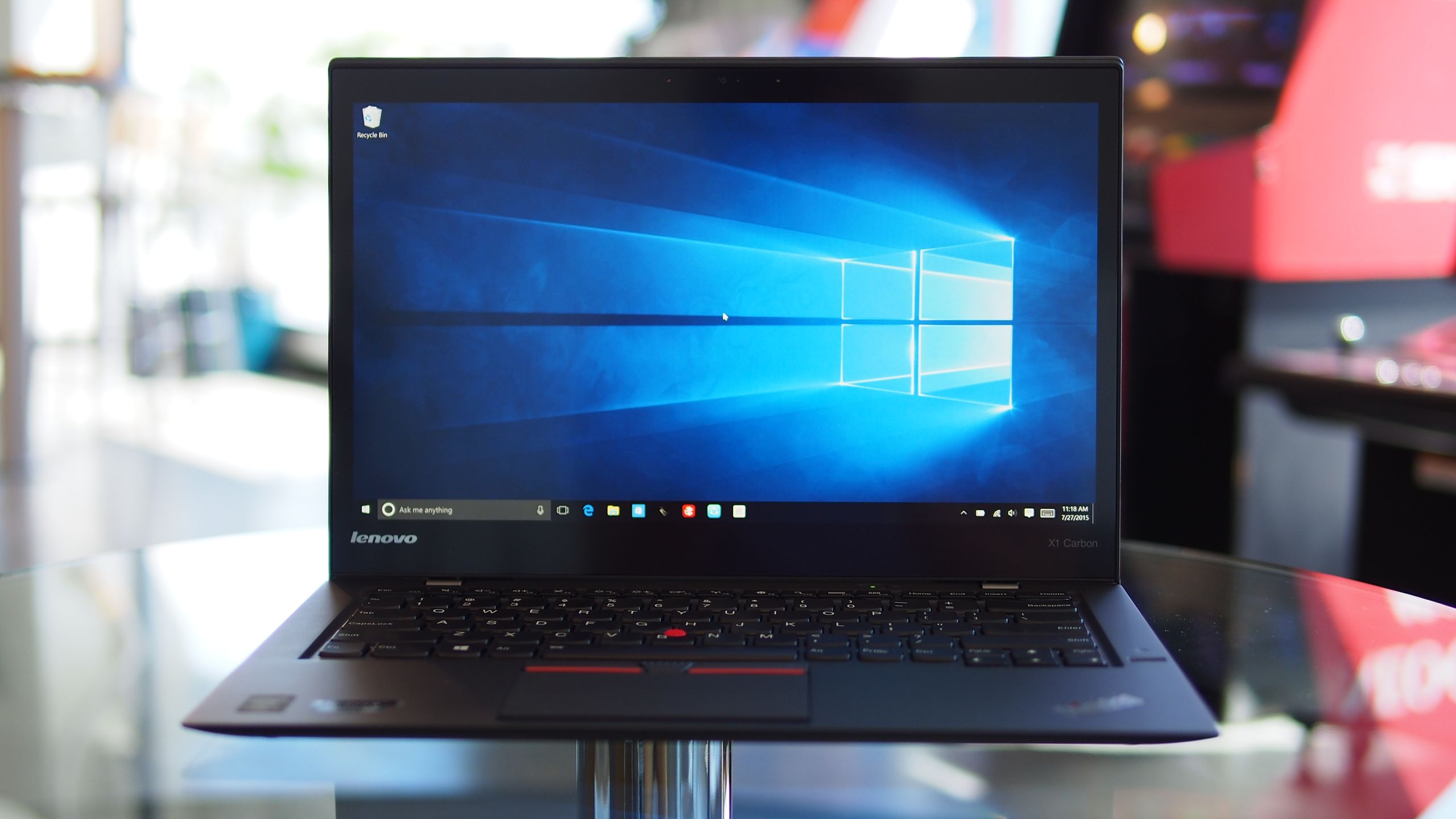Defra’s overall investment totaled £312 million during the current spending review cycle and was intended to remove outdated platforms, retiring Windows 7 hardware and supporting essential national services, including flood systems and border operations.
According to Defra’s submission to Parliament, the program eliminated more than 31,000 legacy laptops, addresses a large backlog of vulnerabilities, and even closed one data center, with several more set for decommissioning over the coming years.
Defra did not confirm whether it intends to pay Microsoft for extended support, leaving open the possibility that the department’s refreshed estate may soon fall behind again.
it’s not even the whole government, it’s just one department

What on earth are they even using these machines for? Are they all just simply workstations? If theyre just used for fucking spreadsheets and word docks, just put fucking Linux on them, I beg you!
At this stage of my life and career I’m ready to start testing and floating the idea that we need to covert every desktop and laptop in my district to Linux.
The amount of money you would save on licenses alone would be astronomical. I bet it would be pretty straight forward using fedora atomic distros. There has to be enough people in public ed that we could collectively crowd source a atomic distros for public education.
There has to be enough people in public ed that we could collectively crowd source a atomic distros for public education.
There’s also literally billions of dollars to be stolen in that sector, so you’re up against the big tech companies literally making it illegal for you to use Linux with $5000 donations to local education officials.
Lol I’d love to see that happen. You’re not wrong. Right now, however, they don’t need to make donations. The windows orthodoxy is fucking strong. It stems from an underserved sector. Most districts in my state are under staffed on technical staff. In some cases they simply farm out the task to an MSP. No MSP in their right mind would offer Linux desktops, because an MSP likely can be a license reseller for Microsoft.
I’d love to push this co tradition. It would fucking drive people mad to learn how much we spend on license and addition subscriptions.
Start tracking it. Get counts and show charts on how much is spent on Google and MSFT products. Then show that in relation to other expenditures that actually help.
Show it internally, then if it doesn’t get anywhere, publish that shit. We should honestly make a tool that exposes hidden costs for this edtech garbage that anyone can use.
Also “donations” was a pejorative for lobbying and corruption. Guess they probably have the system so well captured now that they don’t even need to do that anymore though…
Yeah it’s fully captured except for the student device market which is dominated by iPad and Chromebooks. If they lost desktop the only thing left would be servers but desktop to severe isn’t a real big jump. I imagine we would still need some windows servers, things like for our video surveillance system.
The largest hurdle will be making the smart boards work. Sadly they had a version of notebook that was built for Linux but that’s discontinued now.
I’m pretty sure Azure (cloud services) is already Microsoft’s most profitable business unit. Windows and Office just provides some extra walking around money at this point.
Theoretically a lot of this spend also comes with support contracts, and I expect even moving to a Linux flavor would have to, as well. The last public outfit I worked in was using RHEL as their path forward from big iron AIX, and even that only on the very particular piece of infrastructure I was working on, since it was a Windows shop. The licensing and support was definitely a better experience than M$, but I expect you’d be hard pressed to find a government who’d sign off on just deploying Mint on 5000 workstations and calling it a day. There’s also the enormous inertia of Windows sysadmins who only know how to do MDM and group policy and shit in AD with a GUI.
M$
There was a time where this would make me irrationally annoyed. I don’t even know why anymore.
I expect even moving to a Linux flavor would have to, as well. The last public outfit I worked in was using RHEL
😮💨 You’re 100% correct. RHEL would definitely be the path forward here. Interestingly though I’m reminded of this story from a over a decade ago. Not sure where they are now.
They probably have some custom made applications on at least some of those machines and after the vendor went out of business it took a while to get them updated, revalidated or whatever the IT policy says.
Or SAP
Yeah that’s usually how out goes. Lots of MRIs are running windows XP or probably windows 7 for example. We had a student report card system until maybe two years ago that was written in FileMaker and the person who developed it had died maybe a decade ago. Transitioning to a new system was basically impossible due to staffing issues and how many people we would need to consult and interface with to make the change. The level of impact of the change was often more severe then changing the thing itself.
So I definitely understand how that happens.
Lots of MRIs are running windows XP or probably windows 7 for example.
This stuff is inconsequential in the grand scheme of things. These are appliances, not workstations. They should have no custom software installed on them that the manufacturer didn’t put there. There are IT implications involved with running embedded systems based on obsolete operating systems software, but there is nothing you can do about these systems as an end user besides isolating them to their own highly restricted subnet.
The story is exactly the same in manufacturing. There is a lot of CNC machinery based on unsupported versions of Windows. You’re not getting service from Microsoft, and the only good thing your IT department can do with these machines is create a back-up image of the hard drives and whatever floppy disks / CD ROMs they find inside the electrical cabinet. If you actually wipe the thing and re-install Windows from scratch (let alone anything else), it will never work again unless you fly a service technician out for a full week. The configuration of these machines is very fragile, based on top of a ton of undocumented in-house drivers for hardware which isn’t even available on the open market, and a lot of settings which need to be adjusted based on which motor they happened to have in the warehouse in the particular month it was assembled.
This kind of machinery has nothing to do with what operating system or productivity software is used throughout the office.
I can relate to the FileMaker thing though. This is exactly what the company I work at is doing. They’ve got something like 30 internal applications based on it and an expensive ERP system and for better or worse it will be around until the company goes under. Lord knows why they didn’t just use a Postgres database. They’re paying multiple salaried in-house software developers anyway. They would have saved literally millions of dollars in licensing.
A government is not going to use fedora. It’s either RHEL or some local UK equivalent.
aus army used ubuntu for a while
Ubuntu has LTS
Without LTS, no supported release will ever see the light of production.
This is on a post about the UK government switching to an OS that is currently going EOL…
Sure but what chance has an OS with a 1 year release cycle?
And there are at least still security updates for a few more years for Windows 10.
Windows 7 had security updates until 2023, probably why they finally got in a hury to upgrade at the cost of breaking things.
And there are at least still security updates for a few more years for Windows 10.
Not a few, 1 year. They’re fully discontinuing support next October. Even Windows 11 22h2 is already out of support. They’re forcing everyone to upgrade. Wouldn’t be surprised if they start using their AI bug hunter to release 0 days for 10 and 22h2 so people are forced even harder to upgrade to the AI version.
Microsoft is already selling licenses for security updates until October 2028 and we will see whether won’t continue it beyond that.
A UK company apparently! I would have assumed it was American too.
Not with that attitude!
Supposedly the DPRK’s Red Star OS is based on (or inspired by) fedora, lol. Which I guess makes sense since fedora is sorta the “cutting edge” of Linux distros.
Ooh, you just pissed off all the Arch users right there.
Yeah, “official state Linux distros” are really fascinating to me.
Especially socialist state ones, but not just those. It’s kinda expected to see every dang AES state spinning up their own Fedora or Debian derivative for state use and then also just giving it out to their civilians and anyone else who wants to use it, and I like seeing how explicitly communist they are or aren’t (Most aren’t, which is probably a good thing in context, but part of me misses the Cold War era aesthetics of the Warsaw Pact and partially wishes the USSR were still around simply because the constant reminders of the past revolution and continued goal of building socialism that permeated the culture would absolutely have ended up in a USSR or Warsaw Pact “state Linux distro” and if that existed today it’d probably be my daily driver distro of choice).
What’s weirder is when neoliberal capitalist states yell about software sovereignty and choose to pay state employees to maintain a “state Linux distro” rather than pay for Windows and associated Microsoft support and enterprise services. Which tends to happen more when the US goes more politically off the rails and international trust in US based corpos falls, so… hey, silver lining of US fascism in the digital age, rest of the world starts ditching US products, including software and services, which is neat.
It is interesting that Red Star is based on Fedora, because a lot of “state Linux distros” are based on Debian. Of course the DPRK had to be Different and Quirky.
It’s a good bit
“So, my trusty old Windows 98 era computer completely gave up the ghost this week. Is it time for me to upgrade to Windows XP in the process of getting a newer machine?” - Asked by England at a meeting of all the countries, Hetalia style, October 2025, as Windows 10 reaches EOL.




